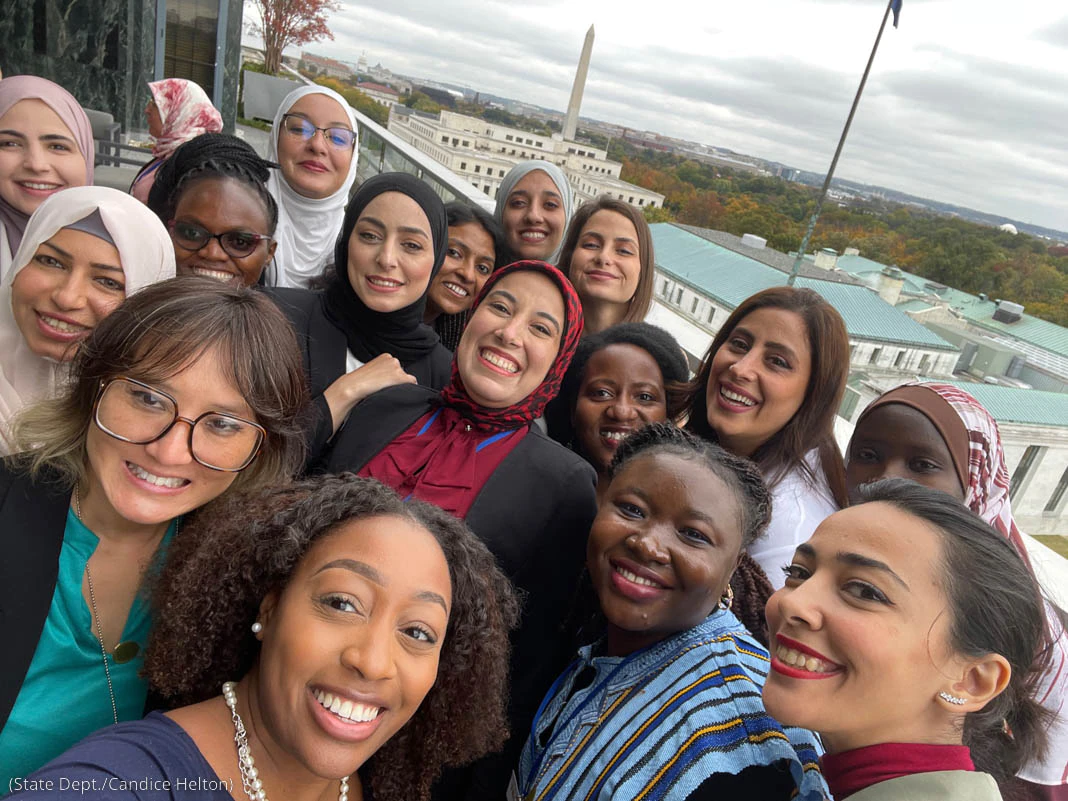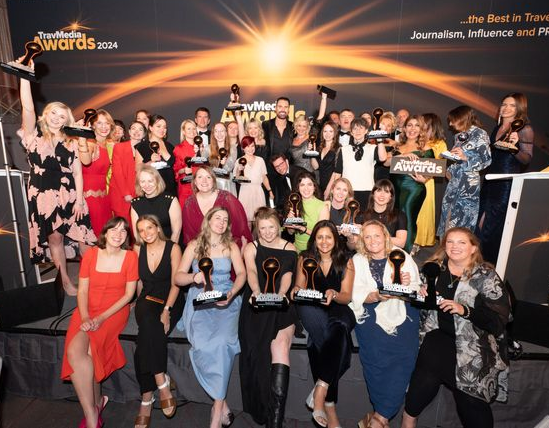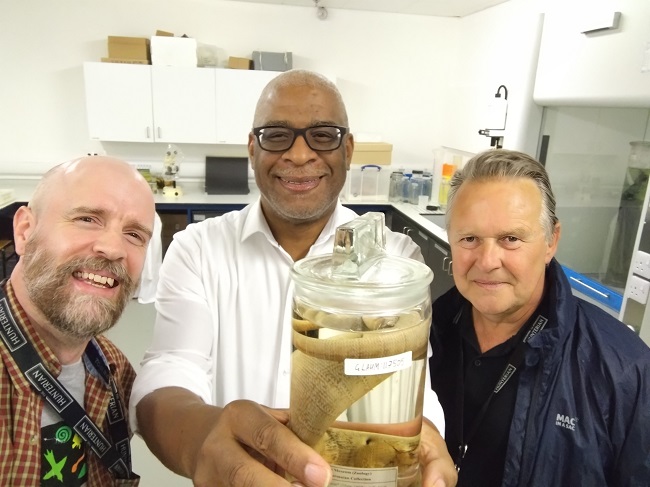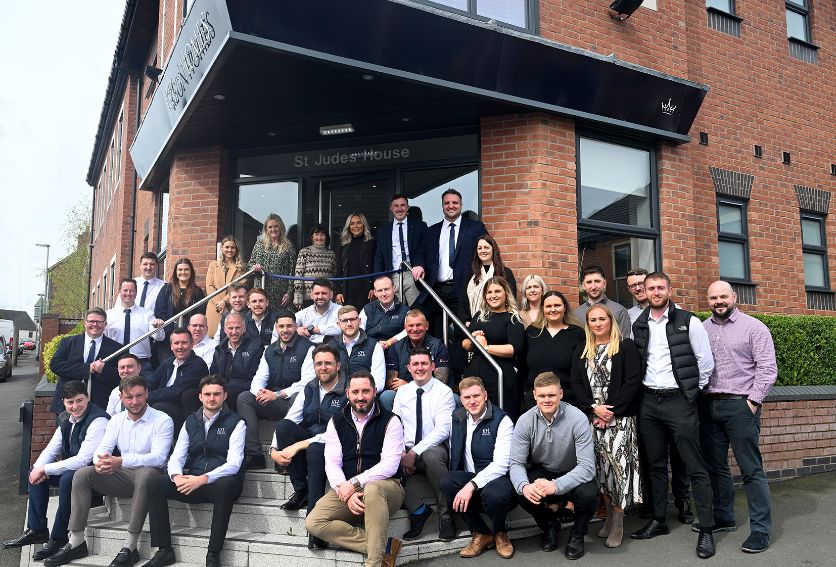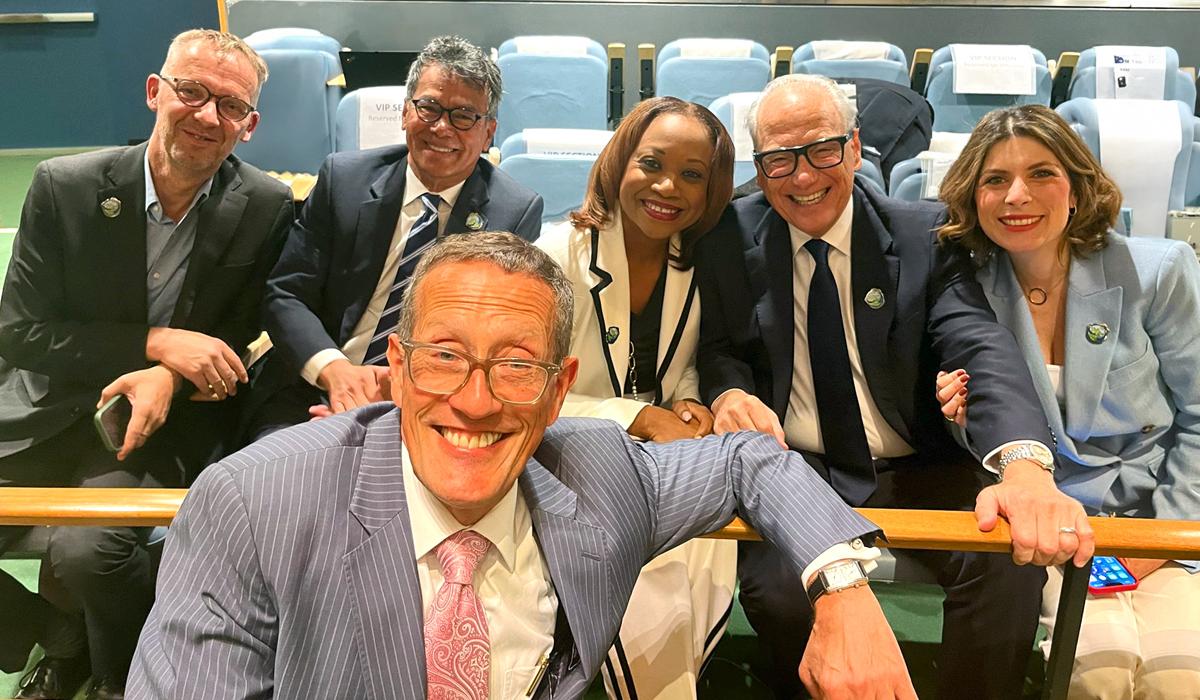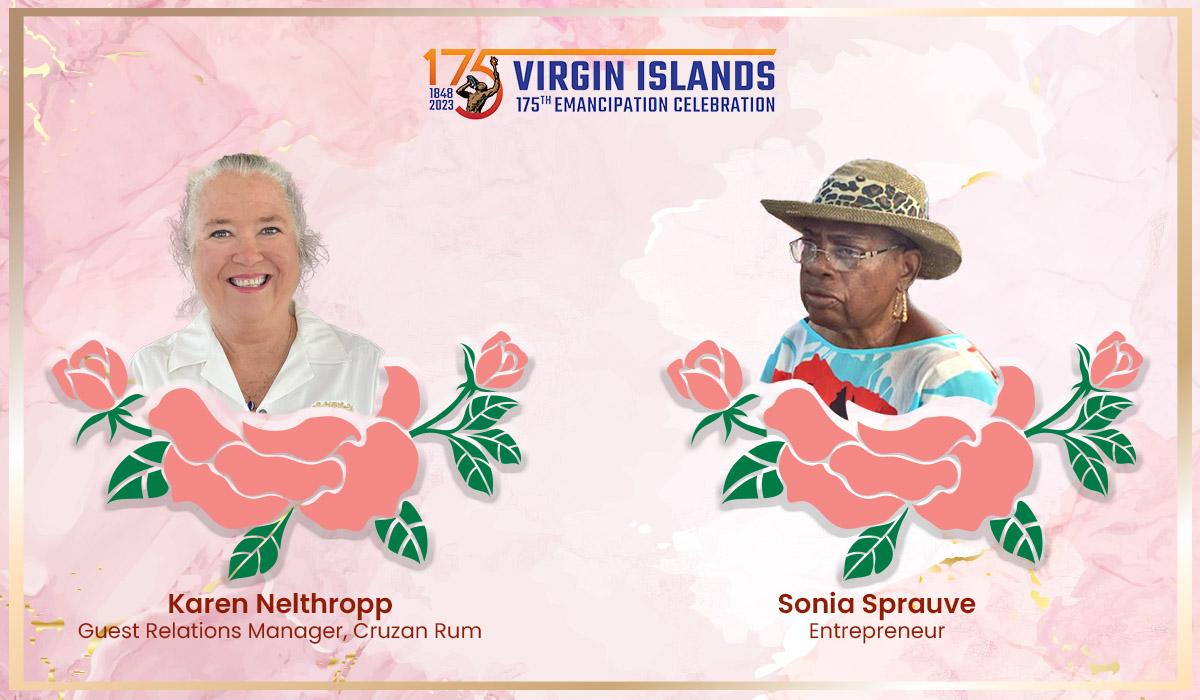When the COVID-19 pandemic first struck, Faten Khalfallah in Tunisia used 3D printing to produce as many pieces of personal protective equipment, such as face masks and gowns, as she could, helping fill a shortfall at local hospitals.
In Lebanon, following the 2020 Beirut port explosion, mechanical engineer Sabine Kai partnered with her mentor, Rebecca Biswas, a hardware engineer at Juniper Networks, to provide students and teachers with laptops, a quiet space to learn and access to the internet to keep their education on track.
Both are among more than 1,000 alumnae of the State Department’s TechWomen exchange program making a difference as the initiative enters its second decade.
In October, Secretary of State Antony Blinken said: “These individuals — and the hundreds of other women that TechWomen will support over the next decade — will continue developing innovative ways to use their skills.”
Since TechWomen began in 2011, the program has grown beyond its original focus on the Middle East and North Africa to include sub-Saharan Africa and South and Central Asia.
And now the program will further broaden its reach. The secretary announced TechWomen will expand to the Balkans, starting with Albania and Montenegro, and to Chicago, America’s heartland, to tap into that city’s growing tech sector.
Blinken also announced the State Department will:
- Launch the first Global Summit on Women in Tech, bringing together alumnae and U.S. mentors, capped off with a competition for seed grant funding to support their innovations.
- Strengthen the connection between TechWomen and TechGirls, the department’s tech exchange for girls ages 15–17, by setting aside some TechWomen participant slots for qualified TechGirls alumnae.
- Create three regional “NextGen TechCamps“ in the Middle East and North Africa, South and Central Asia and sub-Saharan Africa that leverage the expertise of TechWomen alumnae.
TechWomen alumna Lindiwe Matlali in South Africa is doing just that. She founded Africa Teen Geeks, a nonprofit that partners with the government’s education department to develop a school curriculum that has introduced 800,000 students to coding, robotics and other technology.
“Along the way, it’s helping students pick up skills that will make them more competitive for 21st century jobs,” Blinken said of the program.
TechWomen alumna Norah Magero of Kenya said she always imagined women who led top global tech companies had to possess skills profoundly different from her own. “TechWomen introduced me to a network of women leaders that helped me learn that all I need was belief in myself.”




